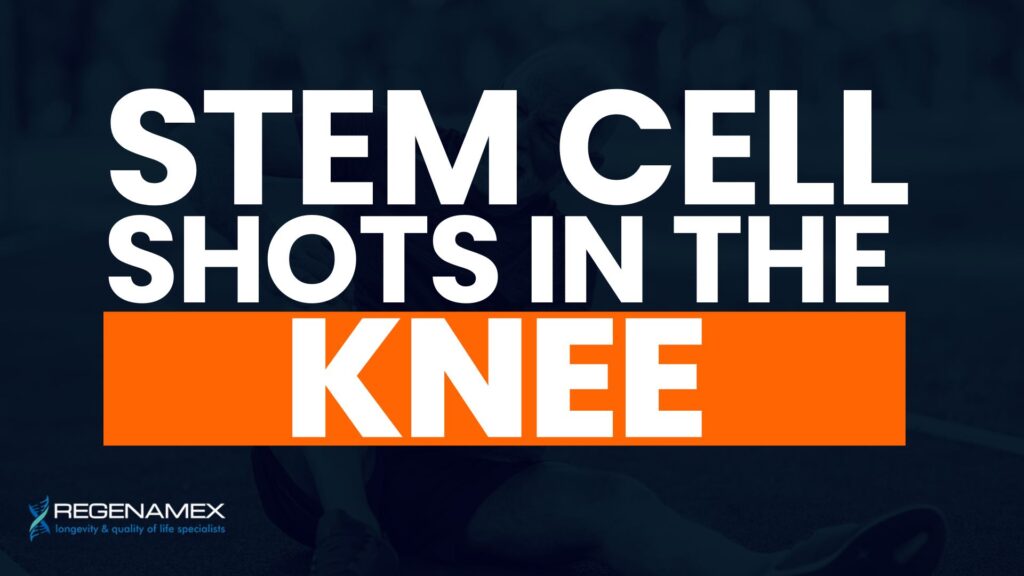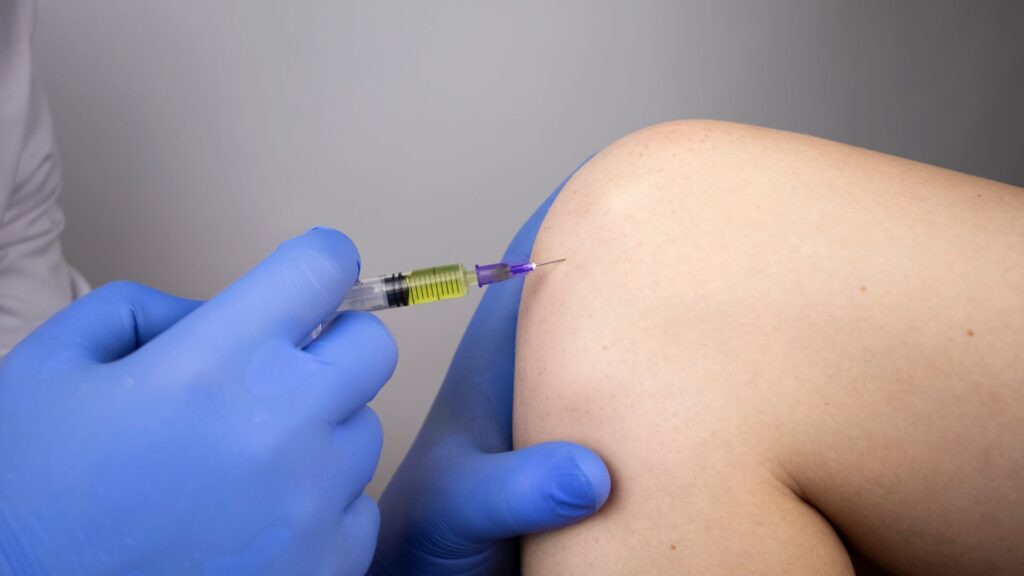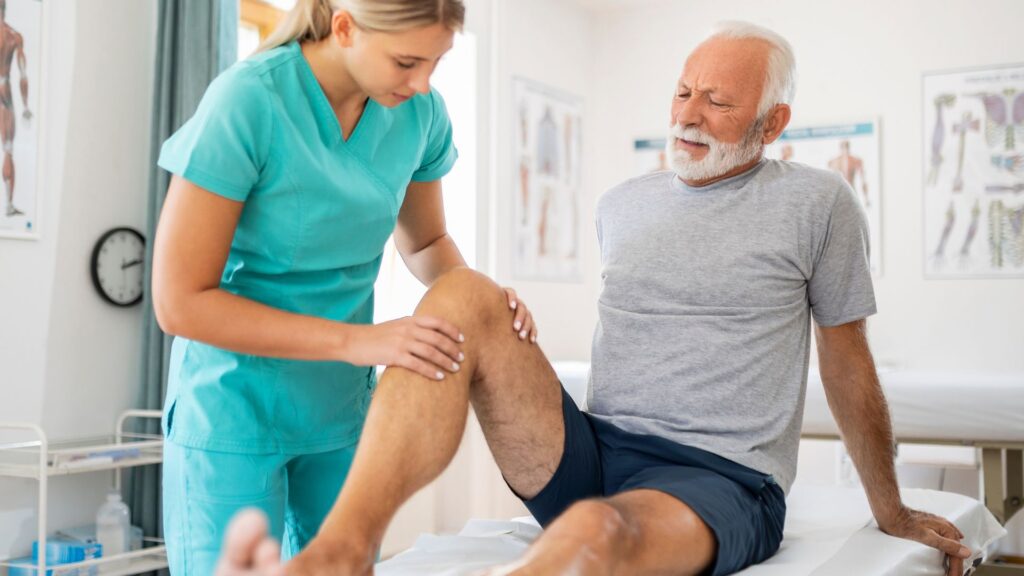
What Is Stem Cell Shots in the Knee and How Does It Work?
Stem cell shots in the knee are an innovative, non-surgical therapy that involves injecting potent mesenchymal stem cells (MSCs) directly into the knee joint to support natural healing and regeneration. These stem cells—especially when sourced from Wharton’s jelly in the umbilical cord—are prized for their remarkable ability to reduce inflammation, stimulate tissue repair, and improve overall joint function. Once inside the joint, MSCs detect areas of damage and release powerful growth factors through paracrine signaling, jumpstarting the body’s natural repair mechanisms. They also help modulate the immune system, calming the chronic inflammation that contributes to joint pain and stiffness. One of the most impressive features of MSCs is their capacity to differentiate into cartilage-like cells, which aids in restoring structural integrity to the knee. Unlike traditional treatments that only mask symptoms, stem cell shots in the knee offer a regenerative approach that targets the root cause of joint deterioration, providing patients with longer-lasting relief, improved mobility, and a chance to delay or even avoid invasive procedures like knee replacement surgery.
Who Benefits from Stem Cell Shots in the Knee?

This regenerative procedure is ideal not just for those battling general knee discomfort, but specifically for people facing chronic or degenerative knee conditions that have not responded well to conventional treatments. Common candidates include:
People with osteoarthritis of the knee
Athletes with ligament or cartilage damage
Individuals with meniscal tears
Patients experiencing knee instability or grinding
Those seeking alternatives to knee surgery
Anyone with chronic inflammation or swelling in the joint
Post-surgical patients with lingering knee pain
Whether you’re a weekend warrior sidelined by pain, someone who’s already explored cortisone or hyaluronic acid injections, or a person just looking to get back to daily life without relying on medications, stem cell shots in the knee provide a compelling, non-surgical path to recovery. Athletes often find they can return to training with greater stability and strength. Meanwhile, older adults frequently describe rediscovering the joy of walking, climbing stairs, or enjoying time with family—activities previously limited by stiffness or pain. It’s this broad range of applicability that makes stem cell therapy such a powerful option for so many people with diverse backgrounds and goals.
Results You Can Expect with Stem Cell Shots in the Knee

Many of our patients describe their experience with stem cell shots in the knee as a gradual unfolding of benefits rather than a single “aha” moment. Within the first few weeks—typically between 2 to 6—you may begin to notice a subtle yet significant reduction in joint pain and inflammation. This early phase is often accompanied by decreased stiffness and a greater ease in performing simple daily movements like walking, standing, or bending. As the regenerative cells begin to work, the next noticeable improvement usually occurs between weeks 4 and 12, where patients report better flexibility, increased mobility, and a return of strength in the knee that had previously been lost to chronic wear and tear.
Over the next 6 to 12 months, the body continues to respond to the therapy. The MSCs help stimulate cartilage regeneration, improve synovial fluid production, and enhance the structural integrity of the joint. Many Regenamex patients share that they’re able to return to physical activities—like biking, swimming, or even light jogging—that they hadn’t enjoyed in years. These regenerative effects aren’t just temporary. We’ve documented sustained improvements that can last well over a year and, in some cases, continue to improve even beyond that window as inflammation subsides and tissue continues to remodel. In follow-ups, many of our clients report they have reduced or completely eliminated their need for pain medications, experienced fewer flare-ups, and, perhaps most importantly, avoided the need for invasive knee surgery altogether. This outcome is what makes stem cell therapy not just a treatment—but a second chance at mobility and freedom.
Why Mesenchymal Stem Cells from Wharton’s Jelly?
At Regenamex, our commitment to quality means choosing only mesenchymal stem cells derived from Wharton’s jelly and placental tissue. These neonatal cells outperform adult-derived stem cells in both potency and purity. Wharton’s jelly MSCs are naturally high in regenerative capacity because they’re young and not exposed to environmental stressors like older adipose- or bone marrow-derived cells. As a result, they have a stronger potential to promote cartilage healing and modulate inflammation. Safety is another major advantage: these cells come from ethically donated umbilical cords after C-section births, without any harm to donors or recipients. With near-zero risk of rejection or tumor formation, Wharton’s jelly MSCs deliver peace of mind alongside powerful therapeutic benefits. By contrast, bone marrow or fat-based procedures involve invasive harvesting and carry higher complication rates—another reason Regenamex never uses those sources.
How the Treatment Is Performed

Every stem cell shots in the knee protocol at Regenamex begins with a comprehensive, personalized treatment plan. No two patients are alike, so our process starts with an in-depth consultation and diagnostic review to understand your joint health, history of injuries, pain severity, and functional limitations. Based on this evaluation, we calculate a tailored dosage—usually between 1 million to 5 million mesenchymal stem cells (MSCs) per kilogram of body weight—to ensure the therapy is precisely aligned with your individual regenerative goals.
The core of the procedure involves direct intra-articular injection, where the stem cells are carefully administered into the knee joint space. This allows for targeted action right at the site of degeneration or injury. Depending on your overall health or if there are systemic issues at play—such as autoimmune activity or nerve-related complications—we may also recommend intravenous (IV) infusion to enhance systemic support. In very specific neurological cases, and only after a detailed medical evaluation, intrathecal injection (into the spinal canal) may be used to reach central nerve pathways.
Your initial clinic visit typically spans 1 to 2 days, which includes your evaluation, stem cell administration, and a rest period. We recommend 24 to 48 hours of low activity after treatment to support optimal cell integration and minimize post-injection inflammation. But the care doesn’t stop there. We maintain a structured follow-up schedule at 1 month, 3 months, and 6 months, during which we assess your progress, guide you through rehabilitative exercises, and offer nutritional strategies to reduce systemic inflammation and encourage healing.
This integrated approach—cell therapy combined with functional rehab, anti-inflammatory lifestyle guidance, and continuous monitoring—ensures not just short-term relief, but long-term regeneration. At Regenamex, we believe successful outcomes are the result of both precision medicine and whole-person support.
Why Patients Choose Regenamex for Stem Cell Shots in the Knee
As a fully licensed regenerative medicine clinic located in Mexico, Regenamex welcomes patients from the U.S., Canada, Europe—and beyond—with international concierge services that handle travel, lodging, language assistance, and medical follow‑up. Our single-minded focus on placental and Wharton’s‑jelly MSCs avoids the variability and risk of alternative sources like fat or bone marrow. We offer transparent, competitively priced packages—typically between $2,500 to $12,000 USD—that include your treatment, assessments, and personalized rehab planning. Plus, all protocols are overseen by board‑trained specialists in regenerative medicine. We believe in medical artistry rooted in licensed regulation, and our reputation speaks through returning clients who describe real transformation—not empty promises.
Learn more about our regenerative medicine protocols on Regenamex’s about us page
Explore how we treat knee osteoarthritis with stem cells
Discover our broader range of sports orthopedic stem cell treatments
For clinical validation, refer to this PubMed study on MSCs and knee osteoarthritis.
Frequently Asked Questions About Stem Cell Shots in the Knee
Stem cell shots in the knee refer to a medical procedure where regenerative cells—specifically mesenchymal stem cells (MSCs)—are injected directly into the knee joint. These stem cells have the unique ability to help your body repair itself by reducing inflammation, stimulating new tissue growth, and supporting the regeneration of cartilage and soft tissues. At Regenamex, we use stem cells derived from Wharton’s jelly, a rich and ethically sourced component of the umbilical cord. Once injected, these cells migrate to areas of damage and begin working at the cellular level, encouraging healing and restoring function over time. It’s not a quick fix like a cortisone shot; instead, it’s a regenerative process that builds real, lasting improvement from within.
The timeline for improvement varies from person to person, but generally, patients start noticing a difference within 2 to 6 weeks after their treatment. This often begins with reduced swelling and less day-to-day pain. More significant improvements—such as increased flexibility, strength, and the ability to move more freely—usually develop between 3 to 6 months. Cartilage and joint structure regeneration can take longer, often continuing for up to a year or more. Unlike temporary fixes, the benefits of stem cell therapy tend to compound over time, as the body continues healing long after the injections are administered.
The cost can vary depending on the severity of the knee condition, the number of injections needed, and whether additional treatment methods (like IV or physical therapy support) are recommended. At Regenamex, our pricing typically ranges from $2,500 to $12,000 USD, making it far more affordable than surgery in most Western countries. Despite the cost advantage, there’s no compromise on quality. Our patients receive personalized care, high-dose MSC protocols, and follow-up guidance as part of the overall experience. We believe in transparency, and all costs are clearly explained upfront.
Regenamex stands apart due to our strict medical protocols, ethical cell sourcing, and deep expertise in regenerative medicine. We only use MSCs from Wharton’s jelly—cells that are younger, more active, and more capable of healing tissue compared to cells extracted from fat or bone marrow. Our clinic is fully licensed and regulated in Mexico, and our care extends beyond the injection itself. We provide comprehensive follow-ups, nutritional guidance, and assistance with logistics for international patients. Many people come to us after being told surgery is their only option—and leave with restored mobility and a renewed quality of life.
At Regenamex, we exclusively use mesenchymal stem cells derived from Wharton’s jelly and placental tissue. These cells are collected from donated umbilical cords after healthy, full-term births via C-section. They are young, highly potent, and have shown superior regenerative ability compared to cells obtained from an adult’s own fat or bone marrow. Importantly, the process of obtaining these cells is completely safe, non-invasive, and free from ethical controversy. We do not use embryonic stem cells or any method that involves harm to donors or recipients.
Most adults experiencing knee pain related to cartilage degradation, meniscus tears, ligament injuries, or chronic inflammation can be good candidates for this therapy. This includes people with early to moderate osteoarthritis, athletes with repetitive strain injuries, and even those recovering from surgery who still experience discomfort. It’s also an option for individuals who want to delay or avoid knee replacement surgery. During your consultation, our medical team will evaluate your medical history, imaging, and goals to determine if stem cell therapy is right for you.

